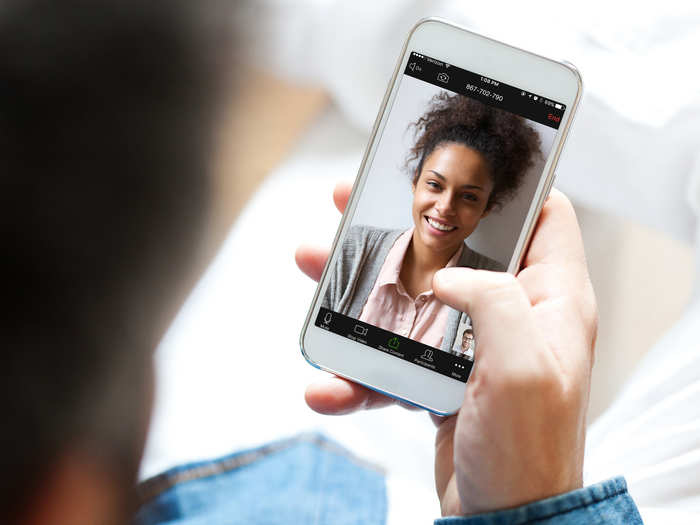- Home
- slideshows
- miscellaneous
- Privacy concerns are swarming around Zoom just as it's becoming everyone's new favorite videoconferencing app
Privacy concerns are swarming around Zoom just as it's becoming everyone's new favorite videoconferencing app
Zoom shared some analytics data with Facebook, sparking a class-action lawsuit.

Zoom videoconferences are being hijacked by internet trolls in a new practice called Zoom bombing.

The FBI has recently received several reports of "Zoom-bombing," which is when an intruder hijacks a Zoom videoconference and infiltrates it with pornographic images or hateful content.
The Boston division of the bureau said it has been made aware of two instances in which an anonymous individual had gained access to a Zoom classroom. In one instance, the individual shouted profanity and then yelled the teacher's home address, while in the other, the person displayed swastika tattoos.
Trolls have even taken to Alcoholics Anonymous meetings, which have turned to video meetings as social distancing is more widely recommended to slow the spread of the coronavirus.
"We take the security of Zoom meetings seriously and we are deeply upset to hear about the incidents involving this type of attack," a Zoom spokesperson said in a statement to Business Insider.
There are some measures users can take to prevent Zoom bombing from occurring. A tool called waiting room allows the meeting host to screen those who enter the call. The FBI also suggests ensuring that the host is the only participant with the ability to share his or her screen, and advises to avoid sharing links to Zoom conferences publicly.
Zoom also addressed the issue and shared tips on its website so users could avoid being Zoom bombed. The company also said users should report such incidents so that proper action can be taken.
Zoom has a feature called "attention tracking" that lets hosts learn when a user may not be paying attention.
Zoom's attention-tracking feature alerts the host of a meeting when a user does not have the meeting "open and active" for more than 30 seconds while another participant is sharing their screen.
The feature has come under fire in the days since Motherboard brought it to attention on March 16. Some have argued that feature is flawed because chat participants may actually be doing work-related tasks, like taking notes, while the Zoom window isn't in use. Others were concerned over the privacy implications.
Zoom said in a statement to Business Insider that the feature is built for training purposes, is off by default, and can only be enabled by the administrator. Zoom doesn't track any audio or video content from calls and does not monitor other apps or activity on your device, the company said.
Zoom audio and video calls do not actually support end-to-end encryption, even though its website says they do, according to a report.

Zoom's security website says its service supports end-to-end encryption for securing meetings, but that may not actually be the case, according to a new report from The Intercept.
End-to-end encryption would mean content is fully protected from third parties — that would include Zoom.
While Zoom's website says it's using end-to-end encryption, the encryption it uses appears to be closer to a type of encryption called transport encryption, the report says. Transport encryption secures the connection between a user's computer and an outside server, similar to how URLs using HTTPS secure the connection between and a website's server and the computer accessing it.
What this means for Zoom users is that their content is encrypted when shared between Zoom servers, and is protected from third-party intruders, but it would still be accessible to Zoom, according to the report.
Zoom did not respond to Business Insider's request for comment regarding the level of encryption it offers.
Zoom also recently published a blog post sharing more information about its privacy policy — namely that it doesn't sell user data and doesn't monitor user meetings — after Consumer Reports and other outlets raised concerns about its data collection policies.
Popular Right Now
Popular Keywords
Advertisement